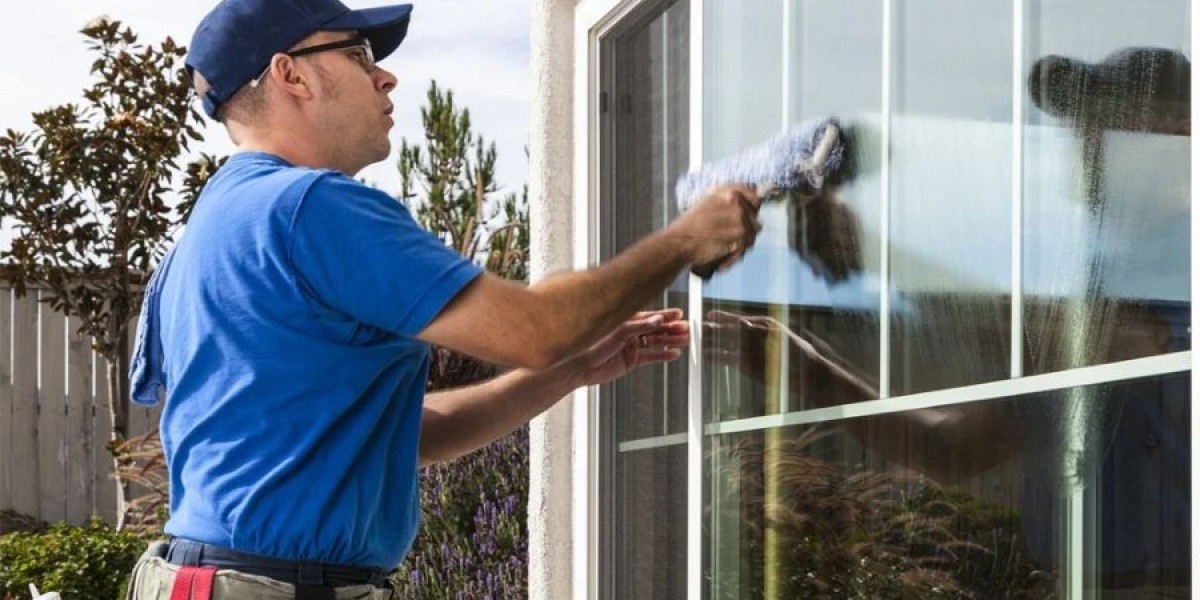While some household cleaning duties are simple, others, such as determining how to clean windows, may require a bit of thought. While window washing may be a frustrating task, it is a worthwhile endeavor, as the appearance of your home will be significantly enhanced by the cleanliness of your windows, from the smaller ones in your bedroom to the larger ones in common areas.
How to Clean Various Types of Glass?
The method of cleaning these windows can also differ, as the glass itself can fluctuate from window to window. We will examine the most frequently encountered varieties of glass and the appropriate methods for cleaning them:
Annealed glass
Annealed glass is a relatively prevalent variety of glass, and it is highly probable that you have it in your windows. The glass undergoes a gradual chilling process to alleviate the internal stresses that may arise following its formation. This glass is generally planar and is exceedingly simple to clean. This glass is difficult to damage, so skilled professional window cleaners will employ a razor blade to scrape it. Nevertheless, we do not advise homeowners to undertake this task. Water, dish soap, a microfiber cloth, and a squeegee are the recommended cleaning methods. WG-57 or your preferred glass cleaner can be used in conjunction with a microfiber towel.
Heat-Strengthened Glass
The surface of heat-strengthened glass has been heat treated to induce surface compression, but not to the extent that it causes it to "dice" upon shattering, as is the case with tempered glass. This form of glass is more durable than annealed glass; however, it may contain fabrication debris. Heat-strengthened glass is capable of withstanding rapid temperature fluctuations; however, it is prone to defects. Razors should never be employed to clear these windows. The window may be compromised as a result of the debris present. Cleaning this window should be equivalent to that of annealed glass, with the exception of scrubbing.
Tempered glass
Tempered glass has the potential to be five times more durable than annealed glass. It is frequently referred to as safety glass because it breaks into small parts that prevent severe injury. Tempered glass is typically identified by a seal or etching. Tempered glass is one of the most difficult varieties of glass to clean. Tempered glass is exceedingly susceptible to scratches. Ensure that you utilize a microfiber towel and a high-quality cleanser. Take caution not to scrub the window.
Low-E Glass
A film or coating is applied to low-E glass to prevent ultraviolet rays from heating your residence. It is highly advised to refrain from using any window cleanser that contains ammonia, as these windows are exceedingly costly. The window must never be scrubbed or cleaned with any form of abrasive material by a cleaner. An ammonia-free cleanser and a microfiber towel are the optimal methods for cleaning this window.
What is the Best Window Cleaning Solution?
These days, there are a plethora of options available for window cleaning solutions. Selecting the ideal solution for your needs might be challenging with so many to select from.
Fortunately, we have examined every kind of window cleaning product and have years of experience. An eco-friendly window cleaning solution is what we advise. Even though it doesn't contain any chemicals that can be excessively harsh or caustic for your windows, it is tough enough to remove accumulated filth.
Innumerable recipes exist for creating homemade methods for washing windows of various kinds, and the store offers a wider variety of window cleaning supplies. Windex is a good alternative that is readily available in stores. Make sure the product you choose doesn't contain ammonia or other really harsh chemicals, as their components vary due to the vast range of uses for which they have them.
They may cause scratches on the glass's surface, particularly if you have sun-blocking film on your windows. It removes streaks and cleans exceptionally well. It is also an effective cleaning solution that can be used on a variety of stains and pollutants, grime, and oil.
If you would rather create your own window cleaning solution, combining detergent with water is a simple and efficient method. Dish soap works really well for this. Make sure the soap or detergent you choose is environmentally friendly and free of harsh chemicals and additives.
For this reason, when it comes to selecting a cleaning solution for your outside windows, dish soap that is friendly to the environment is a wise option. To make a sudsy, soapy solution ideal for cleaning windows, dilute the soap with water and combine. A solution best made at home for cleaning windows is two cups water to a few drops dish soap.
Make sure the solution you use doesn't contain any harsh chemicals that could harm your windows, whether you decide to use a DIY solution or one of the many commercial solutions.
What Strategies Should You Avoid When Cleaning Your Windows?
Before washing the glass, determine whether your windows or doors have special glass coatings. While the interior and exterior energy-efficient coatings are quite durable, they can be damaged if abrasive cleaners or hard items are used to clean.
Our experts recommend that you avoid using the following cleaners and cleaning instruments during your window cleaning process:
- Metal razor blades should not be used to clean or remove paint or stains from glass surfaces. Scratching the outside glass surface may damage the unique coatings.
- To remove the protective film, do not use metal razor blades; instead, pull it back at a corner using your fingernail or a clean plastic scraper.
- Avoid using abrasive cleaners or cleaning instruments such as scrub sponges on any glass surface.
- Do not use newspaper to dry the glass surface because the ink may stain the surrounding objects.








